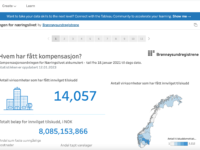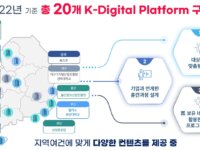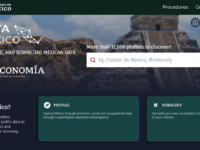The innovation involved creating a central support service for elderly people who need care and monitoring. For this purpose, a Call Center operates on a 24-hour basis with properly trained staff composed of social workers and psychologists, who have direct access to each elderly person's file and respond to the elderly person's emergency calls by telephone.
Innovation Tag: Digital and Technology Transformation
Recognising the need for a high level of Cyber Security across the public sector, the National Cyber Security Strategy (NCSS) called for the creation of a Common Cyber Security Baseline Standard across all Public Sector Bodies and for the establishment of the “CORE Network” to share best practice for cyber security across Government. This project embodies the Irish Civil Service Renewal 2030 Strategy by delivering evidence-informed policy and services, harnessing digital technology and…
The Office of the Prime Minister of the Government of Kosovo, together with GIZ in Kosovo and Innovation Centre Kosovo (ICK) have developed the Civil Service Innovation Program for Implementation of the Stabilization and Association Agreement (Gov4SAA). The program enables civil servants to identify a challenge and then design a solution in the form of innovative products or services to be used by citizens, government, and other relevant stakeholders.
Aware of the ongoing digital transformation and user needs, HRDKorea (Human Resources Development Service of Korea)partnered with the private sector to leverage industry-leading technology for the creation of the Mobile National Technical Qualification Service. The certificate layout was fully reconfigured to fit the smartphone environment and used blockchain technology to develop a service that now allows users to immediately access their certificates on their mobile phones. The previous model…
The digital compensation scheme was created to support Norwegian businesses to endure the financial consequences of the Covid-19 pandemic. The scheme designed was quick, efficient, and can be relaunched when needed. Checks are done before the disbursement, which minimizes the need for verification afterwards and also prevents misconduct. Applications are approved by an auditor, and then automatically processed and checked against information from a variety of sources and registers. Information…
Bureaucracy in Jakarta faced 3 main problems: scattered and unstandardized data, siloed systems, and unintegrated services; making public services inefficient and costly, eventually decreasing public service quality. Jakarta Capital City Government addressed the mentioned challenges through JAKI, a Super-App that integrates services by unifying Jakarta’s bureaucracies and data in one digital ecosystem that prioritises citizen participation in overcoming city problems. JAKI is a one-stop…
ANII, in collaboration with the private sector and the support of Uruguay's Ministry of Health, is piloting a novel Open Innovation Initiative (MH2030). Ageing populations and rising numbers of people with multiple chronic diseases are placing an increasing burden on health systems. There is a need for improving healthcare by fostering an innovative environment. Through this new co-creative approach, local entrepreneurs work collaboratively with partnering healthcare institutions to tailor and…
The Korean government recently piloted the K-Digital Platform (KDP) to enhance national digital literacy and foster manpower suitable for digital convergence as digital transformation and low-carbon economy transition accelerated in all areas of the labor market. This is to strengthen the digital capabilities of various consumers, including workers, young job seekers, and the self-employed, and to preemptively and systematically respond to structural changes in future industries.
In the face of the talent deficit faced by the productive sector in the digital era, PLAi seeks to develop the skills required for Jalisco to consolidate itself as a hub of innovation. It offers training to the economically active population through partnerships with national and international institutions. It is innovative because it takes advantage of good practices of private initiative and the public sector, as well as technological and educational advances in the world and brings everything…
Data Mexico was developed to integrate and transform public and private sector data to enable a better understanding of the economic and social context. The platform facilitates strategic decision-making through key evidence and integrating databases with technologies for aggregating, filtering and reorganising information. In this way, it innovates in public access to data, contributing to the development, diversification and promotion of the Mexican economy.








